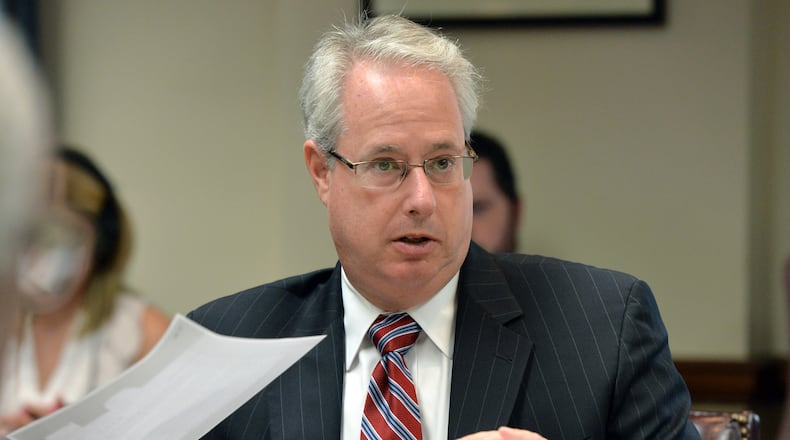Georgia filed a lawsuit on Friday seeking to halt President Barack Obama's climate change regulations, joining about two dozen states trying to block the White House's cornerstone environmental policy.
Georgia Attorney General Sam Olens said the new regulations, announced in August but just formalized Friday, were a "classic example of the Obama Administration’s pattern of attempting to accomplish with regulation what it cannot achieve with legislation.”
The Clean Power Plan is the White House's most forceful effort yet to combat the warming of the Earth.
Stymied by Congress, even when it was under Democratic control, for a cap-and-trade system to reduce carbon emissions, Obama has tested the limits of the Environmental Protection Agency's powers under the Clean Air Act to regulate power plants and heat-trapping gases scientists say lead to rising temperatures.
Critics, though, argue that restricting power generation harms the economy, that renewable energy is not reliable enough and that Obama's efforts will have little practical effect on climate change - particularly with China surpassing the U.S. as the world's top emitter.
The White House and environmental groups paint a dirty picture of Georgia's carbon-damaged environment. Asthma, for example, harms 8 percent of adult Georgians and 11 percent of its children, according to the Atlanta-based Centers for Disease Control and Prevention.
The legal battle is widely expected to wind up in the U.S. Supreme Court. But Georgia environmental officials are drafting a just-in-case plan to comply with the rules if Obama's policy is upheld by the courts.
Judson Turner, the head of the state's environmental protection division, said in an interview that he is working with utilities, Deal's office, lawmakers and others to come up with the plan that improves on the federal policy.
"We're in a tough place doing this dual track strategy," said Turner. "We're not going to try to cross and make major decisions until we understand the plan. And secondly, these are huge commitments that we won't make lightly. It's a delicate balance."
It's also important to note that Georgia got off easier than it thought under the rules. From an August story by the AJC's Dan Chapman and Daniel Malloy:
Last year, when the White House first unveiled its Clean Power Plan, Georgia was tapped to release no more than 834 pounds of carbon per megawatt hour by 2030. Monday, the administration relented — after much lobbying — and said Georgia could release 1,049 pounds per megawatt hour, a goal that should be more readily achieved.
The Environmental Protection Agency further loosened the final rules for all states by delaying the start of new emissions targets from 2020 to 2022.
And, finally, Georgia, South Carolina and Tennessee get credit for planned nuclear power plants, including Plant Vogtle near Augusta. The EPA had previously used the states' nuclear plans as a reason to reduce emissions even further. But the three states successfully argued that their nuclear foresightedness would help them meet the carbon requirements.
About the Author
The Latest
Featured




